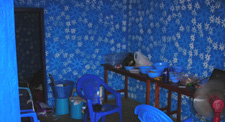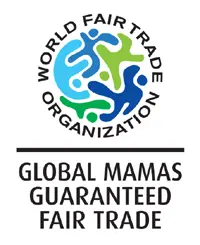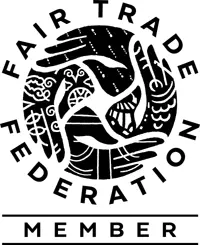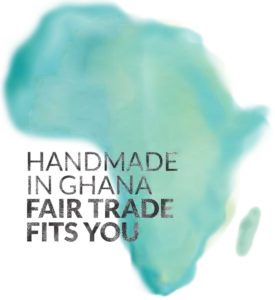By Therese Edwards & Susan Kimber

At long last, our dreams of a second Global Mamas location were realized with the opening of our operations in Krobo in August 2006. Thanks to the hard work and diligence of many of our volunteers and Mandy Sage – who heads the Krobo location – we are now able to offer our international trade program and services to the talented bead workers of Krobo.
Bead making is one of the primary livelihoods in the Somanya/Odumase area of Ghana’s Eastern Region. This industry has existed in the local economy for centuries and is still a primary source of income for many families. The technique used to make glass beads in hand made clay molds has been used in Ghana since at least the early 18th century, although today many bead makers have adapted their technique to use recycled glass. Krobo beads are widely known for their vibrant colors and high level of craftsmanship, but export opportunities for small producers, especially women, are extremely limited.
Most of the bead making businesses are small and family owned with the workshop located on the family compound. In many of the businesses, women play a major role in the bead production carrying out tasks from heating/forming the glass to designing/painting. Women also take the lead in doing the majority of the sale/marketing of the beads. These small bead-making businesses find themselves in a cycle of dependence on larger bead wholesalers. These wholesalers buy the beads from the producers in the house at low rates and then sell the beads to customers at higher rates, acquiring most of the profits. It is difficult for the small bead producers to break out of this cycle of dependency since they do not have the capital to produce larger quantities of beads or travel to larger markets to sell to the end customers at higher prices. The small-scale bead makers need a way to join forces with other producers to increase production capacity as a group, learn how to design and produce finished products, seek larger export customers and receive fair wages for beads produced.
By replicating the Global Mamas Co-operative model to the Eastern Region, WIP will be able to bring its services to an underserved community. By helping local bead makers and handicraft producers to expand their businesses and gain access to the global marketplace, WIP’s programs create growth not only for the businesses in the Co-operative, but also for the community as a whole.
If successful with this expansion, WIP will be able to franchise our program to other communities so that they can model their operations after the successes in Cape Coast and Krobo.
___________________________



